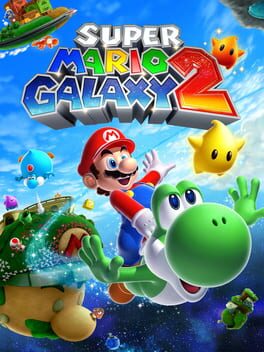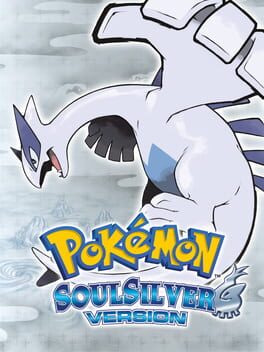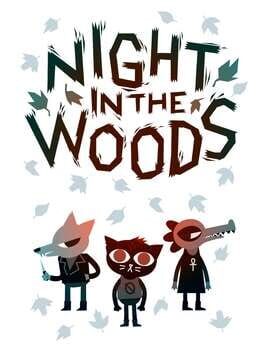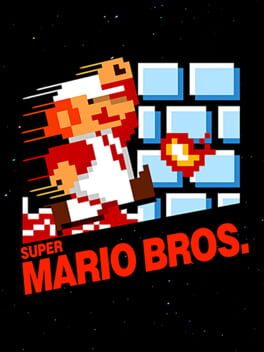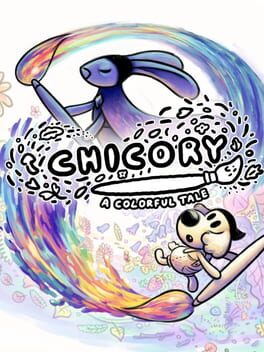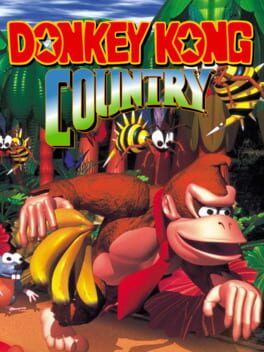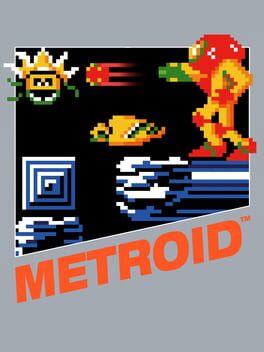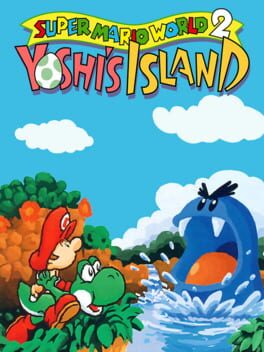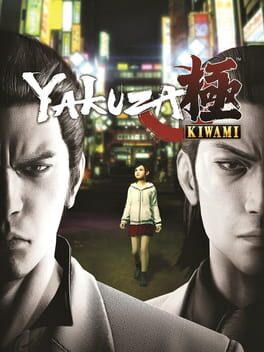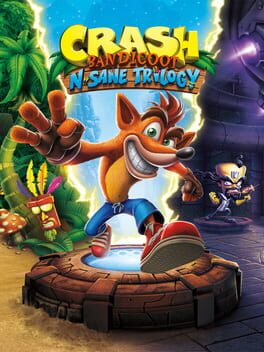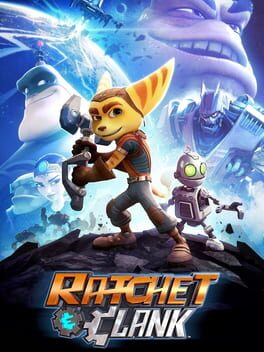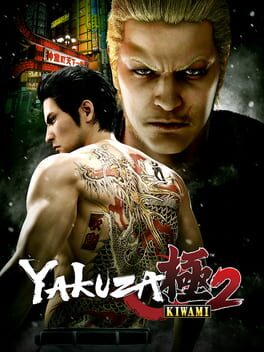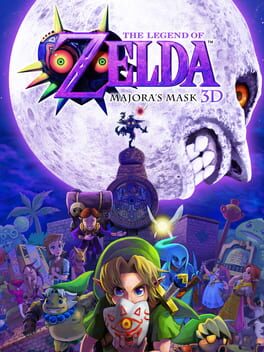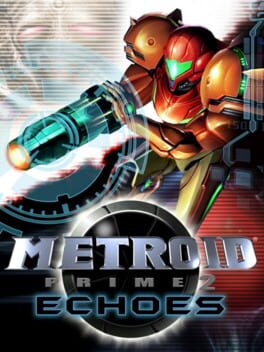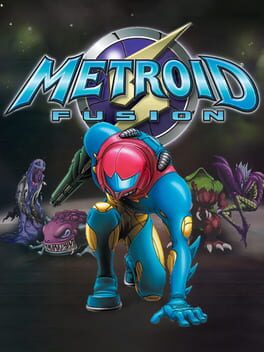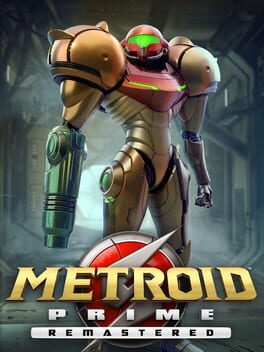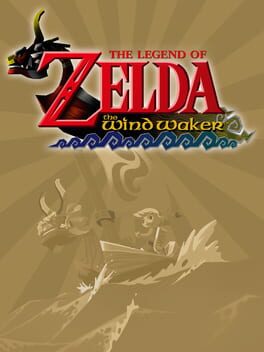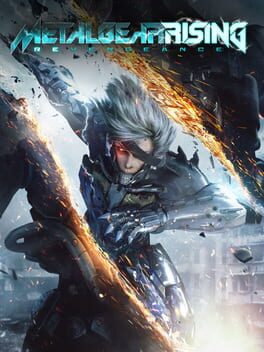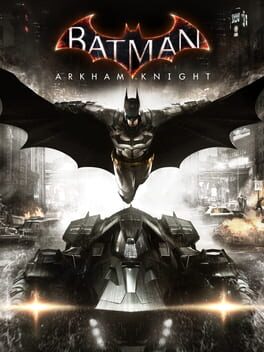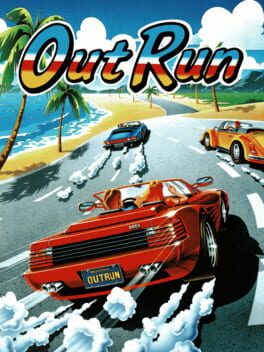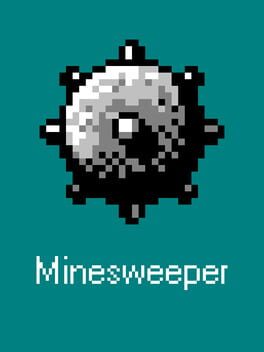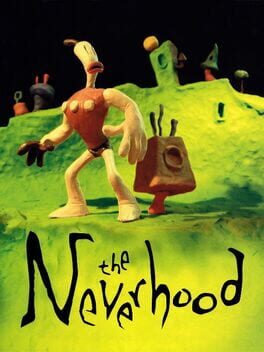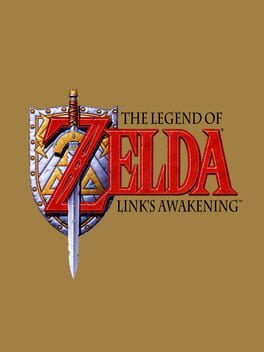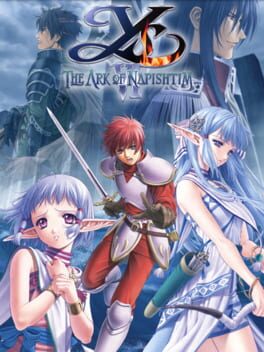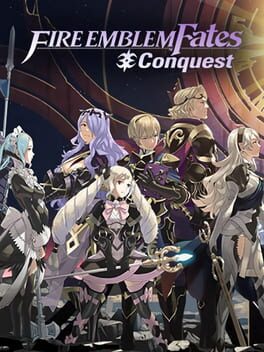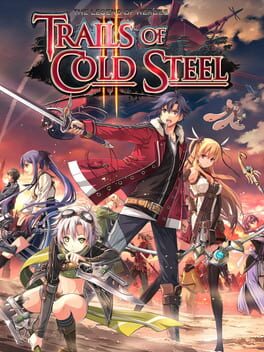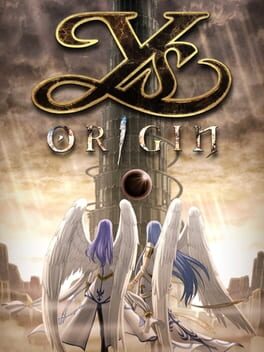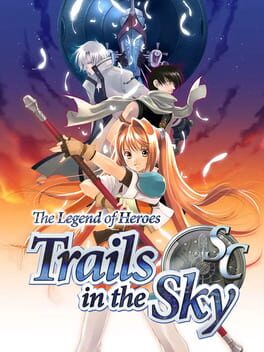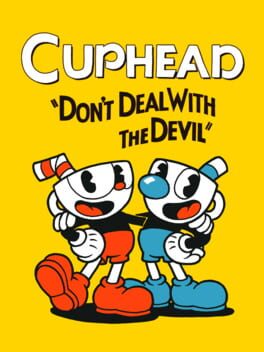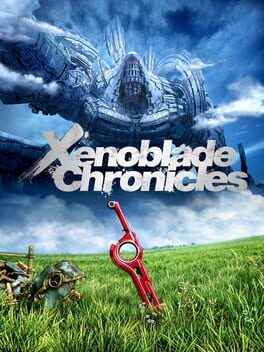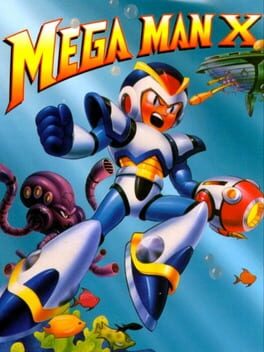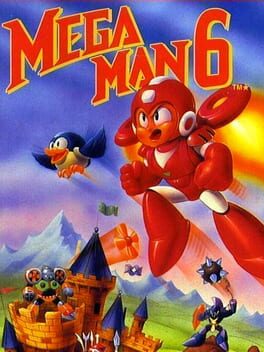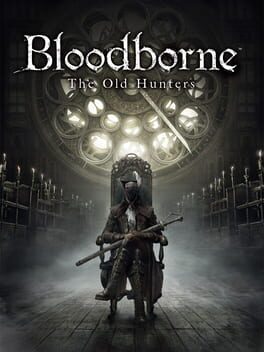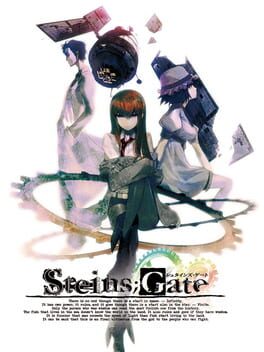maximilyun
170 reviews liked by maximilyun
Super Mario Galaxy 2
2010
Super Mario Galaxy 2
2010
What an amazing game! One of the first games that I've 100%. Everything from the music, to the amount of different worlds and levels in each, the game is truly timeless. I started playing this game when I was very young and fell in love with it. I continued to get better and better at it and began to appreciate it when I started to play more and more games. Nothing comes close to the joy I had playing this game but if there is a criticism I have, it is that after the completion of levels, the loading in and out of worlds can be annoying and repetitive but that is about it. Recommended it for everyone to try!
Night in the Woods
2017
This review contains spoilers
In the year I came back to my home town, my sister was born.
Most of the friends that I had forgot about me, and what seemed so familiar as a child was now alien. The bus route changed. A new McDonald's opened near my house, and a giant condominium blocked my childhood home's view of the ocean.
The sky was more grey than I remember.
This year I turn 20.
I'm every bit as directionless, confused and angry as I was seven years ago.
I think night in the woods struck a chord with me because of this. When I visit possum springs, it reminds me of when I was 12, in a place that was familiar and different. For me, it's hauntingly nostalgic, and reminded me of a time that I miss dearly.
---
Stuff I liked
---
The pit-a-pat of a pretty bad matte black cat's paws on the roof approaching a rat clad in a snug shrug is interrupted with intermittent grunts of effort.
The sound of everything, from the crunch of autumn leaves, the rubber-like twang of power lines, and sizzling of fresh pierogis.
The echoes of delinquent chatter reverberate throughout an abandoned subway. The scuttling of pets and other small rats (children) overlap with the sound of a sputtering engine of an ancient vehicle in desperate need of repair, a car and driver in no hurry to reach their destination. It's a small town after all.
The soundtrack is soft, the humming of the theramin and synth mimicking the whistle of a chilly autumn breeze. It feels like a lullaby. It's calm. Eerily so. But it feels comforting in its own silly, off-kilter way.
These noises go a long way to making you feel like you're there. It does wonders for the atmosphere of this unknown small town in the middle of nowhere. Historical possum springs. It feels cozy. It feels familiar.
Mae's dynamic demeanors are expressed in the smooth animations of actions and reactions to scenarios and inputs. Each character's body language tells you just enough about each person to know at least a little of what they're like.
The paper cutout feel of the art style makes the game feel homely. Like a children's book. The (smooth?) feeling of it's presentation matches it's wiggly and slick character animations.
It's easy on the eyes.
There's also something about the writing in Night in the woods that makes the world feel lived in. Dialogue feels like something me and my friends would say. An awkward slip of the tongue might inadvertently make another panic. Infuriating passive aggressive back and forths eventually explode into a heartbreaking argument. Poems by selmers. It feels real.
There's attention to detail in every offhanded comment. Fragments of stories of the town's inhabitants and escapades are drip fed to you via Mae's recollections and interactions with random objects in town, big events in the past alluded to throughout the game for you to figure out. Where everybody knows everyone. In possum springs, word gets around.
---
Mild Spoilers
---
Night in the woods is a game about mourning. It's about mourning a loved one, a childhood that left a long time ago, a town that used to thrive, now a shambling corpse of what it once was, a toxic cesspool of broken dreams. A black hole, sucking up all the ambitions its inhabitants had,and spitting them out the other side, listless. Hopeless. Tired. But in this town of nothing, empty town of no renown, people find solace and comfort with each other. There is love to be found, there are friends to be had, in a hopeless town where few can escape, where everything stays stagnant, frozen in time, while everything else changes. There's something about this game and it's themes that I find hopeful.
At the end of everything, hold on to anything.
There's one aspect of the story that really stuck with me, the feeling of needing to escape. Mae couldn't find her place in university. She felt so out of place, that she sacrificed everything her parents worked for to return home. Bea couldn't leave her borderline abusive household because how could she abandon her family? She couldn't go to college because she was poor, because she was dealt a horrible hand in life. Gregg and Angus are actively trying to escape possum springs to find a better life. It's everywhere, and it feels messy. In the transitory period of entering adulthood, I constantly feel like I need to get away from everything, that the weight of my responsibility as an adult is crushing me. Living is messy.
I'm the same age as Mae now. It's scary. But playing this game, feeling lost and confused, was comforting in a way. Maybe if you feel the same you'll like it too.
Most of the friends that I had forgot about me, and what seemed so familiar as a child was now alien. The bus route changed. A new McDonald's opened near my house, and a giant condominium blocked my childhood home's view of the ocean.
The sky was more grey than I remember.
This year I turn 20.
I'm every bit as directionless, confused and angry as I was seven years ago.
I think night in the woods struck a chord with me because of this. When I visit possum springs, it reminds me of when I was 12, in a place that was familiar and different. For me, it's hauntingly nostalgic, and reminded me of a time that I miss dearly.
---
Stuff I liked
---
The pit-a-pat of a pretty bad matte black cat's paws on the roof approaching a rat clad in a snug shrug is interrupted with intermittent grunts of effort.
The sound of everything, from the crunch of autumn leaves, the rubber-like twang of power lines, and sizzling of fresh pierogis.
The echoes of delinquent chatter reverberate throughout an abandoned subway. The scuttling of pets and other small rats (children) overlap with the sound of a sputtering engine of an ancient vehicle in desperate need of repair, a car and driver in no hurry to reach their destination. It's a small town after all.
The soundtrack is soft, the humming of the theramin and synth mimicking the whistle of a chilly autumn breeze. It feels like a lullaby. It's calm. Eerily so. But it feels comforting in its own silly, off-kilter way.
These noises go a long way to making you feel like you're there. It does wonders for the atmosphere of this unknown small town in the middle of nowhere. Historical possum springs. It feels cozy. It feels familiar.
Mae's dynamic demeanors are expressed in the smooth animations of actions and reactions to scenarios and inputs. Each character's body language tells you just enough about each person to know at least a little of what they're like.
The paper cutout feel of the art style makes the game feel homely. Like a children's book. The (smooth?) feeling of it's presentation matches it's wiggly and slick character animations.
It's easy on the eyes.
There's also something about the writing in Night in the woods that makes the world feel lived in. Dialogue feels like something me and my friends would say. An awkward slip of the tongue might inadvertently make another panic. Infuriating passive aggressive back and forths eventually explode into a heartbreaking argument. Poems by selmers. It feels real.
There's attention to detail in every offhanded comment. Fragments of stories of the town's inhabitants and escapades are drip fed to you via Mae's recollections and interactions with random objects in town, big events in the past alluded to throughout the game for you to figure out. Where everybody knows everyone. In possum springs, word gets around.
---
Mild Spoilers
---
Night in the woods is a game about mourning. It's about mourning a loved one, a childhood that left a long time ago, a town that used to thrive, now a shambling corpse of what it once was, a toxic cesspool of broken dreams. A black hole, sucking up all the ambitions its inhabitants had,and spitting them out the other side, listless. Hopeless. Tired. But in this town of nothing, empty town of no renown, people find solace and comfort with each other. There is love to be found, there are friends to be had, in a hopeless town where few can escape, where everything stays stagnant, frozen in time, while everything else changes. There's something about this game and it's themes that I find hopeful.
At the end of everything, hold on to anything.
There's one aspect of the story that really stuck with me, the feeling of needing to escape. Mae couldn't find her place in university. She felt so out of place, that she sacrificed everything her parents worked for to return home. Bea couldn't leave her borderline abusive household because how could she abandon her family? She couldn't go to college because she was poor, because she was dealt a horrible hand in life. Gregg and Angus are actively trying to escape possum springs to find a better life. It's everywhere, and it feels messy. In the transitory period of entering adulthood, I constantly feel like I need to get away from everything, that the weight of my responsibility as an adult is crushing me. Living is messy.
I'm the same age as Mae now. It's scary. But playing this game, feeling lost and confused, was comforting in a way. Maybe if you feel the same you'll like it too.
Super Metroid
1994
This review contains spoilers
pretty good game imo
Absolutely no idea how to write about this one. It’s Super Metroid. It’s like trying to write a Backloggd review for oxygen, we all know it’s good and we all know why it’s good. It’s just self-evident. I could write you a bunch of paragraphs you’ve already read before about the atmosphere or the movement or the map design or whatever but it would be a waste of my time and yours because we already know this shit. The sky is blue, the earth is round, Super Metroid rocks. Duh.
What I do have to offer is my experience as somebody who had never played this until now. And yeah, the hype is more than deserved. I’ve played plenty of games with a similar structure or tone or gamefeel to this but none have felt as confident, as seamless, as utterly absorbing as Super Metroid and the world it presents. I’m kind of floored this game is already 30 years old, because you could have released this yesterday and it would still feel ahead of the curve. It’s just that good.
It’s interesting playing this with the benefit of cultural osmosis. I went in with a pretty strong idea of what the game would be, so much of its mechanics and iconography burned into the collective consciousness long before I got there. But actually discovering it all for myself was a different beast entirely. I knew what was coming, but figuring out how to get there was up to me, and I felt like I was always left surprised when I figured out the answer. I felt like I was part of this huge tradition that existed long before me and would continue to exist long after, it was really cool.
Of course, those moments I had no idea were coming were some of the most captivating. I’ll never forget hearing the new Brinstar theme for the first time (probably my favorite song in what’s easily a new top 10 OSTs), or uncovering Dragyon in the depths of Maridia, or piecing together what might have happened in the Wrecked Ship. Games like these live or die by their ability to keep you engaged with the world, and few game worlds feel as rich as this one. I explored pretty thoroughly and still only got a 64% in completion—I guess that means I’m due for a round trip.
I’m once again really grateful that I’m playing these games in order. Like a lot of Super Nintendo titles, Super Metroid is essentially a juiced-up version of its NES progenitor. It’s back to Zebes, but with deeper and more refined mechanics, higher graphical fidelity, a greater sense of spectacle and finally, FINALLY an in-game map. You can’t really appreciate how momentous all that is unless you’ve played what came before. The first 15 minutes of Super feel tailor-made for that audience, a rescue mission for the baby YOU saved, tracing your steps backwards through the Space Pirate base YOU destroyed, seeing how much more ambient and expansive that once-familiar planet has become in your absence. Tons of other moments throughout thrive off your knowledge of how this game used to go, from the first Chozo sentry to the jaw-dropping Kraid reveal to even Mother Brain’s final form. It was just rewarding to see how things evolved, and I'm really glad I had given myself that opportunity. Play games in order!
You know, I tried to play this a few years back after beating Zero Mission but dropped it almost immediately because I couldn’t stand how Samus felt to control. Which feels so silly to me now, because coming off of the NES and Gameboy games, this plays like a dream. If only past-me wasn’t such a loser idiot and could appreciate how big a deal “shooting diagonally” really is. I don’t want to make it sound like the early Metroid games are just stepping stones to this one made obsolete in retrospect because I don’t feel that way. Those are both still very interesting (and more importantly, uniquely interesting) games. But it really does feel like THIS is what the series has been reaching for the whole time, the atmosphere, the interconnectedness, the movement, everything, it’s all here and it’s absolutely perfect. It’s like the tech finally caught up to the dev teams' vision and the results are staggering. It's a revelation. 30 years later, we’re still playing catch-up.
Super Metroid, man. What a game.
Absolutely no idea how to write about this one. It’s Super Metroid. It’s like trying to write a Backloggd review for oxygen, we all know it’s good and we all know why it’s good. It’s just self-evident. I could write you a bunch of paragraphs you’ve already read before about the atmosphere or the movement or the map design or whatever but it would be a waste of my time and yours because we already know this shit. The sky is blue, the earth is round, Super Metroid rocks. Duh.
What I do have to offer is my experience as somebody who had never played this until now. And yeah, the hype is more than deserved. I’ve played plenty of games with a similar structure or tone or gamefeel to this but none have felt as confident, as seamless, as utterly absorbing as Super Metroid and the world it presents. I’m kind of floored this game is already 30 years old, because you could have released this yesterday and it would still feel ahead of the curve. It’s just that good.
It’s interesting playing this with the benefit of cultural osmosis. I went in with a pretty strong idea of what the game would be, so much of its mechanics and iconography burned into the collective consciousness long before I got there. But actually discovering it all for myself was a different beast entirely. I knew what was coming, but figuring out how to get there was up to me, and I felt like I was always left surprised when I figured out the answer. I felt like I was part of this huge tradition that existed long before me and would continue to exist long after, it was really cool.
Of course, those moments I had no idea were coming were some of the most captivating. I’ll never forget hearing the new Brinstar theme for the first time (probably my favorite song in what’s easily a new top 10 OSTs), or uncovering Dragyon in the depths of Maridia, or piecing together what might have happened in the Wrecked Ship. Games like these live or die by their ability to keep you engaged with the world, and few game worlds feel as rich as this one. I explored pretty thoroughly and still only got a 64% in completion—I guess that means I’m due for a round trip.
I’m once again really grateful that I’m playing these games in order. Like a lot of Super Nintendo titles, Super Metroid is essentially a juiced-up version of its NES progenitor. It’s back to Zebes, but with deeper and more refined mechanics, higher graphical fidelity, a greater sense of spectacle and finally, FINALLY an in-game map. You can’t really appreciate how momentous all that is unless you’ve played what came before. The first 15 minutes of Super feel tailor-made for that audience, a rescue mission for the baby YOU saved, tracing your steps backwards through the Space Pirate base YOU destroyed, seeing how much more ambient and expansive that once-familiar planet has become in your absence. Tons of other moments throughout thrive off your knowledge of how this game used to go, from the first Chozo sentry to the jaw-dropping Kraid reveal to even Mother Brain’s final form. It was just rewarding to see how things evolved, and I'm really glad I had given myself that opportunity. Play games in order!
You know, I tried to play this a few years back after beating Zero Mission but dropped it almost immediately because I couldn’t stand how Samus felt to control. Which feels so silly to me now, because coming off of the NES and Gameboy games, this plays like a dream. If only past-me wasn’t such a loser idiot and could appreciate how big a deal “shooting diagonally” really is. I don’t want to make it sound like the early Metroid games are just stepping stones to this one made obsolete in retrospect because I don’t feel that way. Those are both still very interesting (and more importantly, uniquely interesting) games. But it really does feel like THIS is what the series has been reaching for the whole time, the atmosphere, the interconnectedness, the movement, everything, it’s all here and it’s absolutely perfect. It’s like the tech finally caught up to the dev teams' vision and the results are staggering. It's a revelation. 30 years later, we’re still playing catch-up.
Super Metroid, man. What a game.
Metroid Dread
2021
This review contains spoilers
It’s not bad. Decent, even. Catch me on a nice day and I’ll tell ya it’s good! But as much as I enjoyed my time with Metroid: Dread (and I did enjoy it, mostly), I can’t help but feel like it plays things way too safe while also somehow fumbling a lot of the fundamentals. I think the clamoring for a new Metroid game may have overshadowed any priorities for what that game should be. Truthfully, the Metroid name has a lot of baggage. When I hear that name, I think of the NES original’s ambitious nonlinear structure, Return of Samus’s willingness to make you uncomfortable, Super’s masterful sense of immersion and player freedom, or Fusion’s total disruption of series tradition. Dread on the other hand is just… another Metroid. A fine Metroid, but there’s nothing here that really even attempts to be as innovative or transgressive as the 4 games it’s a sequel to, and that to me is the biggest disappointment here.
World design is once again Mercury Steam’s downfall. The linearity isn’t what bugs me –only 2 outta 7 games in this series truly dedicated themselves to the concept, if we’re being honest –but the way it’s implemented is pretty lame, I think. The map always spits you out exactly where you need to be, with any attempts to move off the beaten path usually met by dead ends. I never felt super connected to ZDR in the way I still do to Zebes or SR-388 or the BSL station, and I think it’s because the game never provides any incentive or really any opportunity to familiarize yourself with its layout. It doesn’t help that, while not as egregious as Samus Returns, the level design is still quite cramped and blocky. This doesn’t feel like a living, breathing world as much as a backdrop for a computer entertainment game. It’s also just a really obnoxious approach to building a Metroidvania, if you ask me. I decided to do some backtracking for items before the final boss, and had a pretty terrible time because so many of these screens are so tight and obstructive that they seem intentionally designed to hinder player traversal. The fact each major area is only connected by elevators and teleporters, each one equipped with their own lengthy, demotivating loading screen only makes things worse. And speaking of making things worse, the EMMI zones only serve to compound Dread’s issues with map design. The way each one has to gut whatever area it’s in to make room results in those areas feeling so much less cohesive. It doesn’t help that these zones each look identical, making a by all accounts very pretty and aesthetically diverse game feel visually samey in my head.
The EMMIs themselves also, uh, suck? I think these suck. Relegating each one to their own clearly-demarcated sections that you can freely walk in and out of immediately deprives them of any sense of oppressive spontaneity that something like the SA-X had. Then, once you actually get inside, it’s a formality. Either you effortlessly make it to the other side without hassle, or you get insta-killed immediately and respawn right outside the door. If these were more substantial sections with a little more leeway there might be interesting conflict here. But as is, I’m either gonna skate by mindlessly or I’m getting stuck repeating the same 10 seconds of gameplay over and over again, each loading screen killing the pace and my patience more and more. The omega cannon segments, a genuinely creative new idea, at least have some compelling puzzle design and an exciting flashiness to them. But for me they ultimately get really bogged down by an overly cumbersome control scheme and that same trial & error tedium. The EMMIs also lack any of the thematic resonance that made the SA-X or the Space Pirates of past games so memorable, which is like, the best part of these type of encounters??? I think even the devs get bored of these guys after a while, since they go largely absent from the mid-to-late game only for the final EMMI to be killed off unceremoniously in a cutscene. I dunno man, a big swing and a miss for me.
A lot of Metroid: Dread has this weird give-and-take to it. The power-ups are really cool and satisfying to use, but the way they’re implemented is shockingly unimaginative. Outside of a few optional missile tanks (the only optional collectible you’ll find 80% of the time), you’re mostly only using these upgrades as specialized keys for specialized doors, the grapple beam and ice missiles being the biggest offenders. Boss fights are fantastically frenetic, but so many of them are copy-and-pasted, particularly in the late game, that they lose a lot of their initial impact. I actually really like the attempt at a steeper difficulty, but while some challenges feel really tense and gratifying, others like the EMMIs just feel like banging your head against a wall until it cracks. The game is fucking stunning to look at, easily one of the best graphical showcases for the Switch, but the environments themselves are just kind of bland and forgettable to me. Outside of some novel Chozo structures, it all felt like more of the same caves, plant areas, waterworlds and Norfair clones I’m used to.
This review seems really mean and that’s because yeah, it is. But as I said at the start, I did enjoy my time here. For all that I think Dread gets wrong, I think it gets Samus very, very right. Her controls feel wonderfully agile, and the way she moves in cutscenes is just…so fucking cool like holy shit wow. While I don’t think her moveset here has as much depth as it did in Super or as much crunchiness as in Fusion/Zero Mission, I can’t deny how satisfying the simple act of moving and shooting is in Dread. This was the thing that really ruined Samus Returns for me, but fuck dude, even the counter and Aeion system don’t make me want to kill myself now! It’s a remarkably fun game to play considering how unremarkable so many of it’s design decisions are. And hey, as nitpicky as I can get here, I can’t deny how great the sense of spectacle is here. Sure it’s fanservice, but that Kraid fight had me a hootin’ and a hollerin’, and moments like that go a long way in the final analysis. I have a lot of grievances with Metroid Dread, but I don’t think it’s a bad game per se, and I’d easily recommend it to any aspiring Metroid fan. Just, y’know. Play the other ones first.
“But schlocky,” you cry, “Does all this redeem Mercury Steam for Samus Returns?” Hahaha absolutely not. Are you fucking kidding me? Have you read the articles about what they put their developers through? No way man. Burn that shit to the ground.
World design is once again Mercury Steam’s downfall. The linearity isn’t what bugs me –only 2 outta 7 games in this series truly dedicated themselves to the concept, if we’re being honest –but the way it’s implemented is pretty lame, I think. The map always spits you out exactly where you need to be, with any attempts to move off the beaten path usually met by dead ends. I never felt super connected to ZDR in the way I still do to Zebes or SR-388 or the BSL station, and I think it’s because the game never provides any incentive or really any opportunity to familiarize yourself with its layout. It doesn’t help that, while not as egregious as Samus Returns, the level design is still quite cramped and blocky. This doesn’t feel like a living, breathing world as much as a backdrop for a computer entertainment game. It’s also just a really obnoxious approach to building a Metroidvania, if you ask me. I decided to do some backtracking for items before the final boss, and had a pretty terrible time because so many of these screens are so tight and obstructive that they seem intentionally designed to hinder player traversal. The fact each major area is only connected by elevators and teleporters, each one equipped with their own lengthy, demotivating loading screen only makes things worse. And speaking of making things worse, the EMMI zones only serve to compound Dread’s issues with map design. The way each one has to gut whatever area it’s in to make room results in those areas feeling so much less cohesive. It doesn’t help that these zones each look identical, making a by all accounts very pretty and aesthetically diverse game feel visually samey in my head.
The EMMIs themselves also, uh, suck? I think these suck. Relegating each one to their own clearly-demarcated sections that you can freely walk in and out of immediately deprives them of any sense of oppressive spontaneity that something like the SA-X had. Then, once you actually get inside, it’s a formality. Either you effortlessly make it to the other side without hassle, or you get insta-killed immediately and respawn right outside the door. If these were more substantial sections with a little more leeway there might be interesting conflict here. But as is, I’m either gonna skate by mindlessly or I’m getting stuck repeating the same 10 seconds of gameplay over and over again, each loading screen killing the pace and my patience more and more. The omega cannon segments, a genuinely creative new idea, at least have some compelling puzzle design and an exciting flashiness to them. But for me they ultimately get really bogged down by an overly cumbersome control scheme and that same trial & error tedium. The EMMIs also lack any of the thematic resonance that made the SA-X or the Space Pirates of past games so memorable, which is like, the best part of these type of encounters??? I think even the devs get bored of these guys after a while, since they go largely absent from the mid-to-late game only for the final EMMI to be killed off unceremoniously in a cutscene. I dunno man, a big swing and a miss for me.
A lot of Metroid: Dread has this weird give-and-take to it. The power-ups are really cool and satisfying to use, but the way they’re implemented is shockingly unimaginative. Outside of a few optional missile tanks (the only optional collectible you’ll find 80% of the time), you’re mostly only using these upgrades as specialized keys for specialized doors, the grapple beam and ice missiles being the biggest offenders. Boss fights are fantastically frenetic, but so many of them are copy-and-pasted, particularly in the late game, that they lose a lot of their initial impact. I actually really like the attempt at a steeper difficulty, but while some challenges feel really tense and gratifying, others like the EMMIs just feel like banging your head against a wall until it cracks. The game is fucking stunning to look at, easily one of the best graphical showcases for the Switch, but the environments themselves are just kind of bland and forgettable to me. Outside of some novel Chozo structures, it all felt like more of the same caves, plant areas, waterworlds and Norfair clones I’m used to.
This review seems really mean and that’s because yeah, it is. But as I said at the start, I did enjoy my time here. For all that I think Dread gets wrong, I think it gets Samus very, very right. Her controls feel wonderfully agile, and the way she moves in cutscenes is just…so fucking cool like holy shit wow. While I don’t think her moveset here has as much depth as it did in Super or as much crunchiness as in Fusion/Zero Mission, I can’t deny how satisfying the simple act of moving and shooting is in Dread. This was the thing that really ruined Samus Returns for me, but fuck dude, even the counter and Aeion system don’t make me want to kill myself now! It’s a remarkably fun game to play considering how unremarkable so many of it’s design decisions are. And hey, as nitpicky as I can get here, I can’t deny how great the sense of spectacle is here. Sure it’s fanservice, but that Kraid fight had me a hootin’ and a hollerin’, and moments like that go a long way in the final analysis. I have a lot of grievances with Metroid Dread, but I don’t think it’s a bad game per se, and I’d easily recommend it to any aspiring Metroid fan. Just, y’know. Play the other ones first.
“But schlocky,” you cry, “Does all this redeem Mercury Steam for Samus Returns?” Hahaha absolutely not. Are you fucking kidding me? Have you read the articles about what they put their developers through? No way man. Burn that shit to the ground.
This February, Nintendo opened the Hollywood location of their Super Nintendo World park at Universal. This has been read by some as a cynical money grab but for me it reads more as an act of idolatry. To install their divine architect of Miyamoto to its station, this was no simple investment. Instead, the area is a three hundred million dollar monument to the Man of Mario and the Mushroom Kingdom.
It's gorgeous, and a well-made park, but the experience is so artificial and self-referential that it can only really succeed at being a facade. Why would it do anything else? It doesn't have to create Mario. It simply has to evoke Mario. Represent Mario. It doesn't have to be Mario.
Mario Wonder takes after the park. The craftsmanship in its construction is phenomenal- there are countless points where a player will notice effort that didn't have to be expended. It's fun to see the set pieces, and they are fun set pieces. Nintendo's talent shines through. But it's difficult to ignore that the game speeds you from place to place, never letting you catch your breath in one spot for too long. Wonder shuffles you from attraction to attraction, constantly terrified that it might lose your attention should you ever try and dawdle too long. The timer might be literally gone, but make no mistake: you will be shuttled forward.
At the end I was left with a profound feeling of emptiness. What did I really do in those levels? I don't feel like I went through a course, like I was tested. Instead, Wonder just did its thing, and I happened to be around. Sometimes, the game will ask you to perform Mario Wonder, to recreate a set of actions like you're playing an Osu course.
Super Mario Bros. Wonder is a theme park. The Flower Kingdom is not a place for you to inhabit in any meaningful capacity. It is a series of places that you arrive at, witness, and then move on from.
Sincerely, it's a good game, but I eagerly await a period where Nintendo might not be so content sitting on its laurels. The Switch era has been by far Nintendo's most self-congratulatory, and while Wonder is a good time, it is left somewhat hollow because Nintendo seems more interested in basking in its legends rather than creating new ones.
It's gorgeous, and a well-made park, but the experience is so artificial and self-referential that it can only really succeed at being a facade. Why would it do anything else? It doesn't have to create Mario. It simply has to evoke Mario. Represent Mario. It doesn't have to be Mario.
Mario Wonder takes after the park. The craftsmanship in its construction is phenomenal- there are countless points where a player will notice effort that didn't have to be expended. It's fun to see the set pieces, and they are fun set pieces. Nintendo's talent shines through. But it's difficult to ignore that the game speeds you from place to place, never letting you catch your breath in one spot for too long. Wonder shuffles you from attraction to attraction, constantly terrified that it might lose your attention should you ever try and dawdle too long. The timer might be literally gone, but make no mistake: you will be shuttled forward.
At the end I was left with a profound feeling of emptiness. What did I really do in those levels? I don't feel like I went through a course, like I was tested. Instead, Wonder just did its thing, and I happened to be around. Sometimes, the game will ask you to perform Mario Wonder, to recreate a set of actions like you're playing an Osu course.
Super Mario Bros. Wonder is a theme park. The Flower Kingdom is not a place for you to inhabit in any meaningful capacity. It is a series of places that you arrive at, witness, and then move on from.
Sincerely, it's a good game, but I eagerly await a period where Nintendo might not be so content sitting on its laurels. The Switch era has been by far Nintendo's most self-congratulatory, and while Wonder is a good time, it is left somewhat hollow because Nintendo seems more interested in basking in its legends rather than creating new ones.
The Legend of Zelda
1986
epic games preservation fail: secrets permanently out of stock. there was once a wonder of the ancient gaming world here. but now it is covered in stainless steel and rebar. very few people explore in hyrule anymore. now, its visitors are mostly tourists. if a game like this was released today, people would rightfully call its core design hopelessly naive.
zelda 1 was always meant to be solved with a little bit of help- whether it be homemade maps, schoolyard secret swapping, or good old Nintendo Power™. but that does not mean that the years have been kind to the game. the world map itself remains unchanged 35+ years later. it's us who have changed around it. a whole cottage industry has sprung up on teaching people how to finish video games. sure, guide magazines existed in the 80s. but the rugged, chunky open world is cut through like mist with the guided tours that clutter the first several pages of google search results. the exact amount of help you'll need in this game isn't even clear until you've already spoiled yourself, and the vast, vast majority of people Will need help to get to the end of this game.
miyamoto famously created this game to evoke the feeling from his childhood of trying to piece together surroundings he didn't understand, organically discovering surprises along the way. as a society, no matter how we try and ignore it, we always have a perfect map in our backpack.
zelda 1 was always meant to be solved with a little bit of help- whether it be homemade maps, schoolyard secret swapping, or good old Nintendo Power™. but that does not mean that the years have been kind to the game. the world map itself remains unchanged 35+ years later. it's us who have changed around it. a whole cottage industry has sprung up on teaching people how to finish video games. sure, guide magazines existed in the 80s. but the rugged, chunky open world is cut through like mist with the guided tours that clutter the first several pages of google search results. the exact amount of help you'll need in this game isn't even clear until you've already spoiled yourself, and the vast, vast majority of people Will need help to get to the end of this game.
miyamoto famously created this game to evoke the feeling from his childhood of trying to piece together surroundings he didn't understand, organically discovering surprises along the way. as a society, no matter how we try and ignore it, we always have a perfect map in our backpack.
Super Mario Bros.
1985
if you think this game “plays weird” and don’t get the hype i beg you to play 5 other NES platformers then come back, relax, and feel the lushness of the first true strand type game.
super mario bros is not the primordially simple jumping game it is often introduced as. platformers had ages to mature in the hypercompetitive arena of the arcade throughout the 70’s and early 80’s. aside from its understatedly elegant aesthetic, the ambition in SMB is in the elevation of movement from merely a mode of traversal to a gymnastic, expressive activity.
megaman, simon belmont, and ryu hayabusa are all transparently simple state machines— the amount of possible actions they can take is finite and countable. super mario bros did not invent momentum in platforming, nor was it the first to leverage the additional complications that a more involved system of movement entails. the friction between the player avatar and the ground. the acceleration from a dead stop to a full run. the short moment after taking your finger off the jump button before the character truly starts to fall. all the little intricacies and details compound to make mario a much more expressive vessel for a player to inhabit. what sets SMB apart is that the movement is honed to the extent it becomes even more natural than the comparatively simple systems of the above games.
mario’s body doesn’t literally move like the human form does, but negotiating the balance of a jump in mid-air, trying to establish steady footing on unhelpful terrain, and wheelin and dealing with newton’s first law in general is central to the human experience. in super mario bros, nintendo squarely refocuses the platformer from a cabaret of obstacles to a celebration of acrobatic motivity
and so, it became the bedrock upon which their castle was built
super mario bros is not the primordially simple jumping game it is often introduced as. platformers had ages to mature in the hypercompetitive arena of the arcade throughout the 70’s and early 80’s. aside from its understatedly elegant aesthetic, the ambition in SMB is in the elevation of movement from merely a mode of traversal to a gymnastic, expressive activity.
megaman, simon belmont, and ryu hayabusa are all transparently simple state machines— the amount of possible actions they can take is finite and countable. super mario bros did not invent momentum in platforming, nor was it the first to leverage the additional complications that a more involved system of movement entails. the friction between the player avatar and the ground. the acceleration from a dead stop to a full run. the short moment after taking your finger off the jump button before the character truly starts to fall. all the little intricacies and details compound to make mario a much more expressive vessel for a player to inhabit. what sets SMB apart is that the movement is honed to the extent it becomes even more natural than the comparatively simple systems of the above games.
mario’s body doesn’t literally move like the human form does, but negotiating the balance of a jump in mid-air, trying to establish steady footing on unhelpful terrain, and wheelin and dealing with newton’s first law in general is central to the human experience. in super mario bros, nintendo squarely refocuses the platformer from a cabaret of obstacles to a celebration of acrobatic motivity
and so, it became the bedrock upon which their castle was built
31 lists liked by maximilyun
by chandler |
48 Games
by VixiChrome |
17 Games
by chump |
10 Games
by seymourflux |
76 Games
by NOWITSREYNTIME17 |
30 Games
by NOWITSREYNTIME17 |
51 Games
